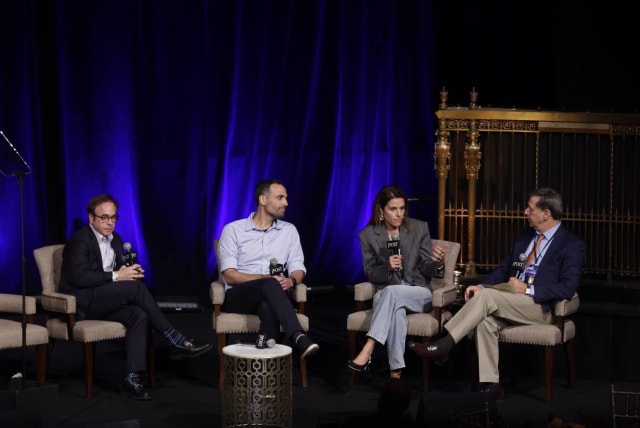Is AI the investment industry’s saving grace?

Amid global economic slowdown, artificial intelligence’s current ongoing boom in advancement has the potential to enable the world’s investment industry to weather the storm.
Thanks to AI, Israel’s investment climate is brimming with opportunities despite the economy’s current challenges, according to a panel of experts at The Jerusalem Post Annual Conference in New York which convened on Monday.
The panel was held in order to give an overlook from the perspective of leading Israeli investors, and was attended by Pitango Growth venture partner Liron Wand, US News & World Report executive chairman and CEO Eric Gertler, and LinkedIn’s Chief Product Officer, Tomer Cohen.
Amid prevailing economic challenges, the field of artificial intelligence investment stands out as a beacon of opportunity. The panels of experts expressed that, despite the global economic slowdown and the aftermath of the COVID-19 pandemic, AI investment presents immense potential for growth, innovation and returns.
“In a challenging market like today, where you're seeing a lot of pause or decline in venture capital activity, I think what we're going to see is that the strong and resilient companies are going to be the ones who survive and the ones that are really building products that make a difference,” noted Wand. “Some of the things that we look at when we evaluate new investments are going back to basics: looking at growth rates, looking at profit margins, looking at net retention, and net revenue retention, and really kind of going to the basic KPIs and metrics that indicate whether a company is solid and resilient.”
Why has artificial intelligence sparked so much interest from investors?
Wand went on to explain the intense interest that AI has generated among investors. “Artificial intelligence and Generative AI presents both an opportunity and a threat,” she said, explaining that the threat is akin to what happened upon the emergence of the iPhone in the 2000s. “When the iPhone came out, we realized that a lot of companies that were building products, or that were standalone companies had suddenly become features of the iPhone. And I think we're gonna be seeing a lot of that with AI as well.”
“The opportunity, though, when you take this into account, is to really think about how AI can really build resilient companies that are not just for consumer conscious consumption, but are really changing workflows, and are really changing how we do things and how we think about things today. So while it can be a challenge for some companies today, I think it's going to be an amazing opportunity for both venture capitalists and entrepreneurs to think about how they embrace the AI trend,” she said.
Cohen elaborated on the perspective of the actual companies that are investing in AI in order to integrate it into their operations. “right now, there’s a tension between managing your business very efficiently, but at the same time, doubling down on technologies like AI,” he said. “It's a very special moment in time right now, where you can actually have phenomenal innovation in the market and if you're missing that point, you're actually gonna stay behind. It's a really interesting moment in time where you can really start going back to the drawing board, and reinvent what you're thinking about.”
Gertler agreed, noting that “Any company that is not now thinking about AI and how it fits in with their product is going to have a difficult future.”
“The reality is this is one of the most disruptive technologies that we're seeing, and as a company we're trying to figure out ways that we can incorporate that into our products and ensure that we create much more engaging experiences for our consumers,” he said. “Certainly AI will be the most disruptive force [in the near future].”

